Liv Langma Advanced SL Disc Red eTap review
Top-flight model from Liv offers the punchy acceleration we always knew it should
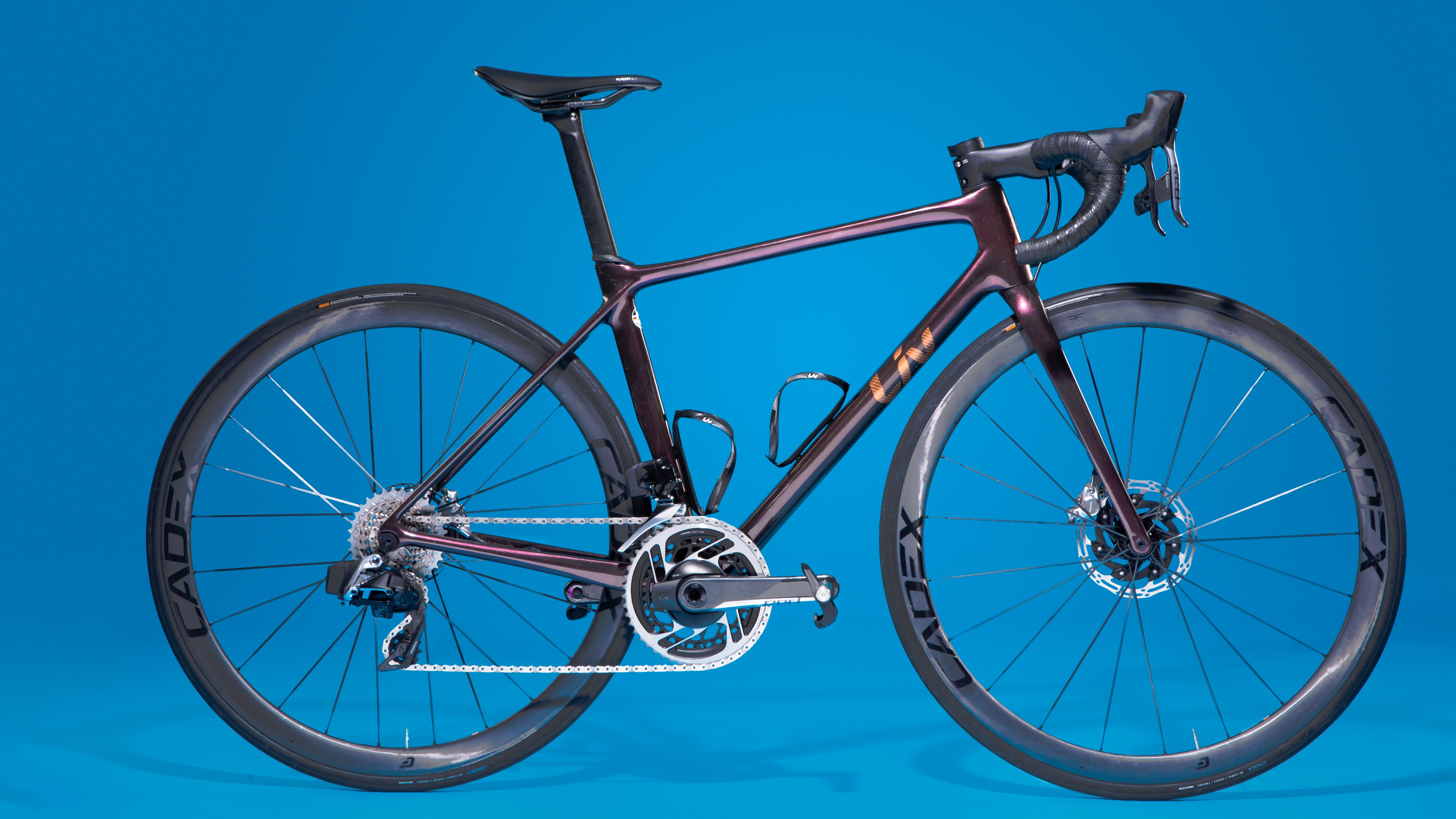
The Liv Langma Advanced SL Disc is the bike I've chosen to take to the races this season, and that says most of what I need to say. The 2022 build boasts grin-inducing acceleration but is still compliant enough for long days out. A 50mm wheel wouldn't go amiss, but this will be down to personal preference.
-
+
Brilliant ride
-
+
Balance of weight vs aero features
-
-
Race bike could benefit from a 50mm wheel
You can trust Cycling Weekly.

The Langma is the all-rounder race bike from Liv. Whilst the Taiwanese brand continues to produce the EnviLiv aero bike, it is the disc only Langma that appears at the Women’s World Tour beneath the brand’s sponsored riders.
With its low weight and more recent aerodynamic uplifts, like the best all-rounders, the Langma aims to excel on the climbs as well as the flat. With a boost to tyre clearance - now at 32mm - the versatility box is ticked, too.
It’s impossible to ignore the similarities between the Liv Langma, and the TCR from the brand’s parent company, Giant. Despite shared technologies, geometry charts separated by millimeters, and matching finishing kit, Liv is adamant that the Langma is its own bike. And, like the TCR (the Ultegra Di2 equipped model being the winner of our race bike grouptest), it is without a doubt a bike which we couldn't fail to recommend.
Liv Langma Advanced SL: frame and fork
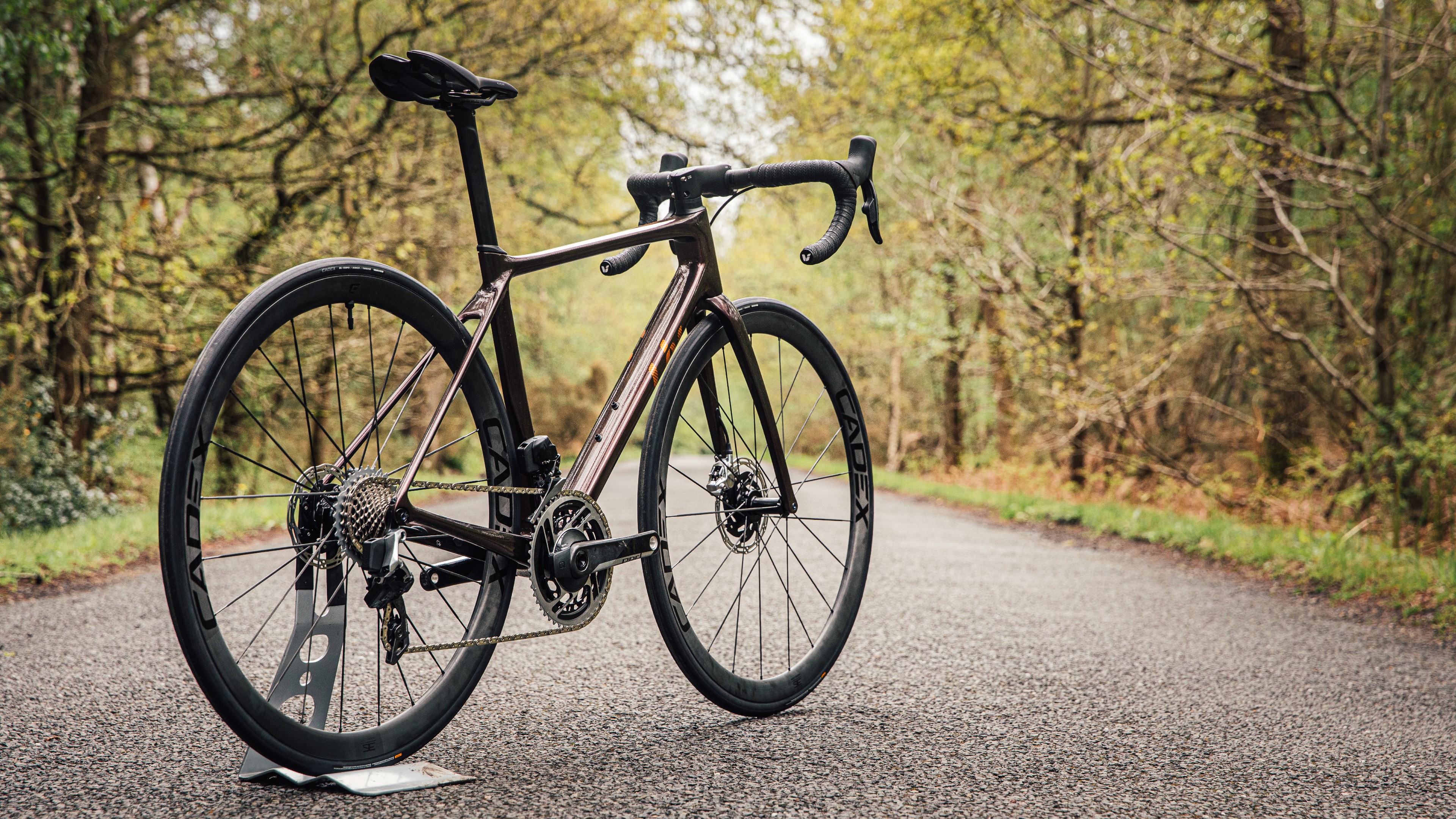
The Langma I have on test employs the Advanced SL chassis. Being the top of the line incarnation, it boasts the stiffest carbon and the lowest weight. The frame is paired with the Advanced Pro SL carbon fork, and my built bike weighs 6.7kg.
For 2022, Liv says that it increased the fork stiffness on the SL bike by a massive 50 percent. This is a rather giant leap, and does somewhat imply to me there was an issue to address. Unfortunately, the brand has only provided stiffness increase claims on the SL material, however, on test the Liv Langma Advanced Pro Disc 1 performed excellently.
As well as bolstering the fork, Liv says that it used "longer and more continuous pieces of carbon fiber," creating an SL grade chassis that's both stiffer and also 60g lighter, compared with the inaugural Langma Advanced SL.
Asked how the stiffness/compliance differs vs the TCR, Liv’s engineer Sophia Shih told me: “The carbon layup between the Langma and TCR are different, which is a result of prototype testing with our professional athletes that race on the WorldTour. They have guided our team to establish the distinct balance of stiffness and compliance that’s found on the Langma. In comparison to one another, there are areas of the Langma that are less stiff than the TCR, because of the direct feedback from our athletes; simply put, they wanted a more compliant bike.”
The layup differs across the sizes, too. All of this is exactly what you’d expect - even if power to weight is equal, smaller riders will almost always produce lower finite power numbers, therefore, will want carbon with a lower stiffness rating - material that might feel flexy to an 80kg rider could feel like riding an iron gate to a 52kg rider, something not all brands take into account.
Notably, this Liv Langma Advanced SL Disc does not come with an integrated seatpost like the TCR Advanced SL, with our last tester noting this contributed to a harsh ride, I'd take that to be a positive alteration.
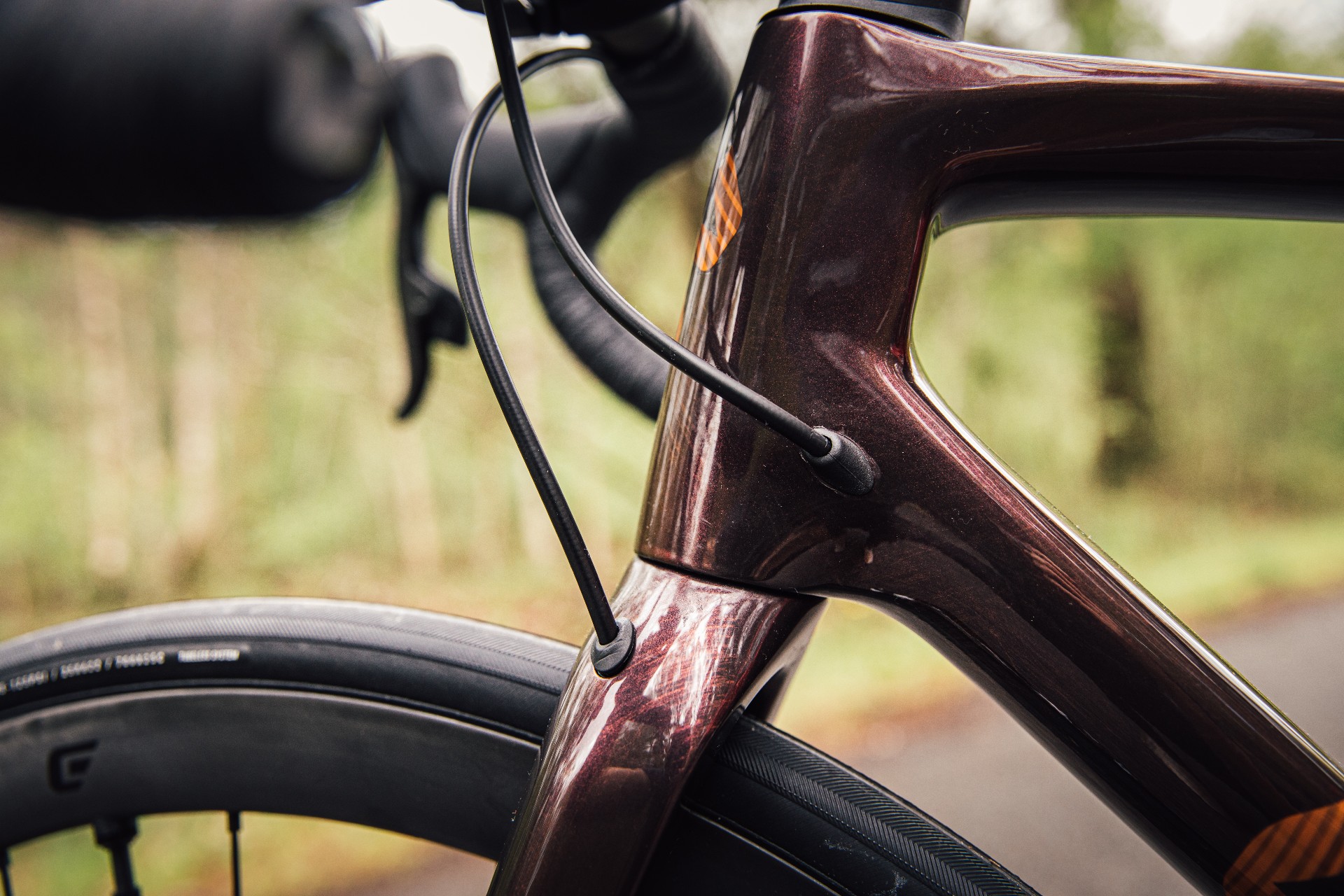
The frame has been visited by a lick of the aero paintbrush. Liv says that it has used truncated ellipse tubing to reduce drag at a wider range of yaw angles. This was mirrored in the launch of the TCR. As always, we're limited in not having a wind tunnel to test the theory.
Asked directly if the Langma is now more aerodynamically optimised than the EnviLiv (which is heavier) Liv told me it hadn't compared the two bikes against each other. However, it's notable that the EnviLiv hasn't seen a facelift for a few years and the pro team rides the Langma.
Cable routing wise, Liv is sticking to its maintenance-friendly guns, with cables (in this case, only brake cables as eTap is wireless) external from the handlebar before diving into the frame at the headtube and fork. Liv is eschewing the clean aesthetics and marginal aero gains of integrated cables in favour of ease of maintenance, and I’m all for this, but I'll concede that those who preface this are a dying breed.
Other alterations for 2022 include an increase in tyre clearance, Liv has made space for 32mm tyres.
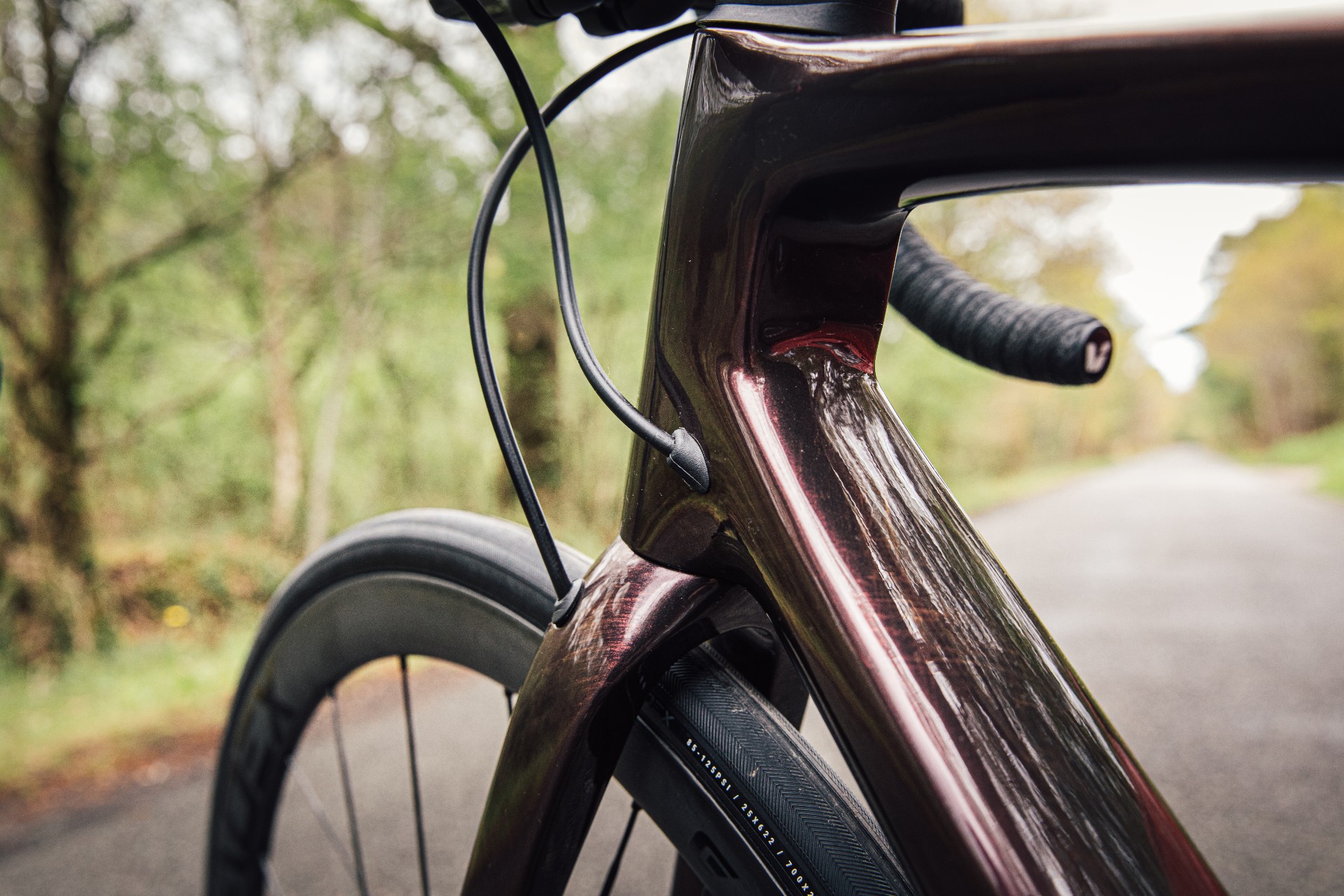
When it comes to geometry, the Langma is a race bike and its numbers stack up. My size small comes with a reach of 376.5mm, a stack of 231.8mm, a 72 degree headangle, 977.2mm wheelbase and 405mm chainstays.
Stack and reach wise, that pitches it as slightly less aggressive than the Specialized Tarmac SL7, and more aggressive than the Cannondale SuperSix Evo (where aggressive means long and low). The stack looks like it has been increased slightly vs the outgoing model, but this is due to the introduction of a new, lower cone spacer resulting in extra length being added to the headtube.
The handling co-ordinates: head angle, wheelbase and chainstays all point to a nippy bike that’ll corner and handle well at speed.
The bottom bracket is press-fit, which is less home maintenance-friendly than a threaded option, but neither Giant nor Liv looks set to turn its back on pressed in cups.
Liv Langma Advanced SL disc Red eTap: components
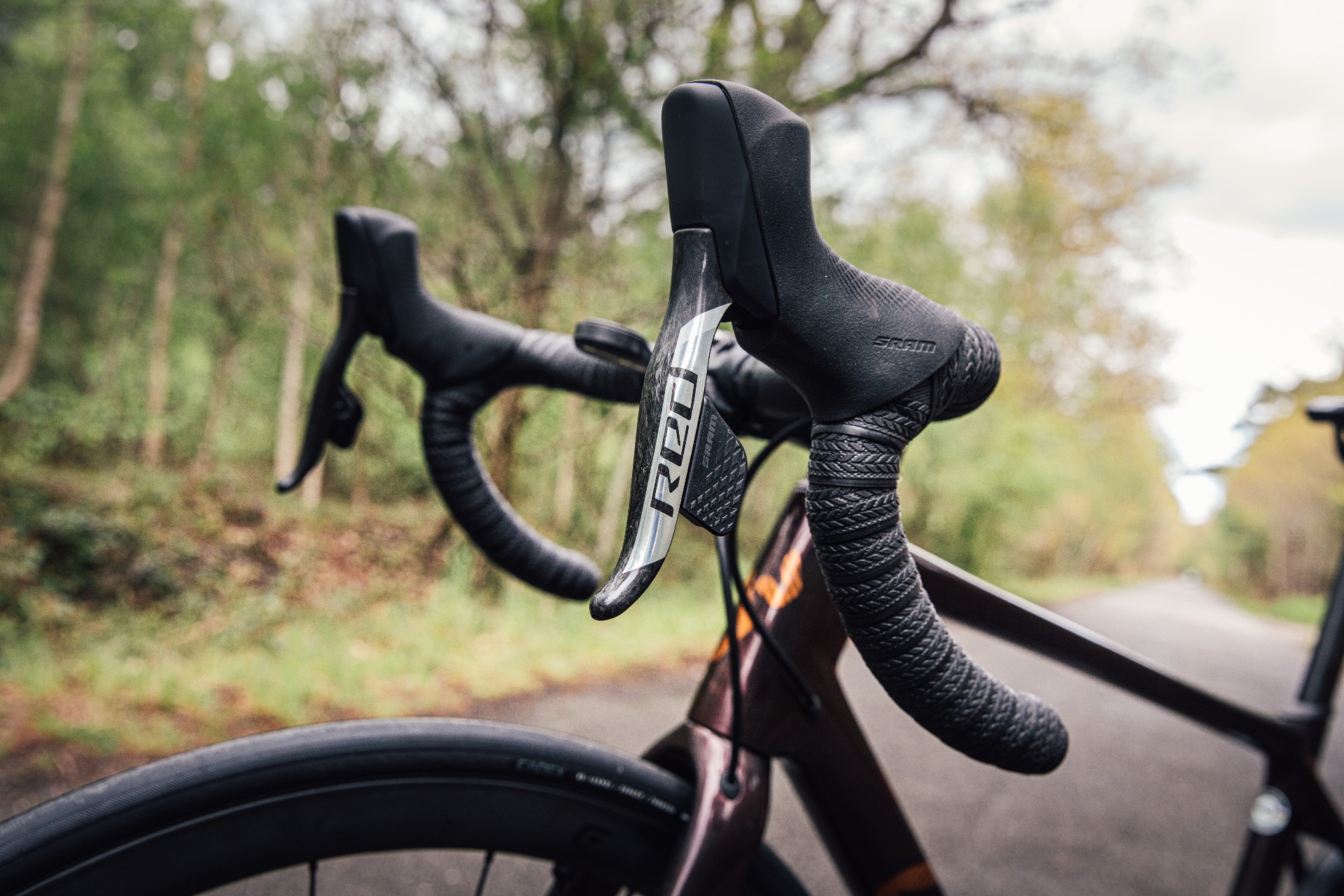
SRAM Red eTap on this top of the line build, the UK will have a top flight model with a 'different groupset' soon
As the name would suggest, this bike comes specced with SRAM’s top flight Red eTap groupset, alongside a Quarq power meter. Both performed faultlessly, but come with a price tag to match - check individual reviews of each for more detail.
Liv has specced the bike with a two-piece Liv Contact SLR stem, and Liv Contact SL handlebars. At the rear, is a (proprietary) Giant Variant SLR carbon seatpost, which will no doubt quell some road buzz alongside wide tyres.
For most women, one of the primary benefits of buying a women's bike is the elimination of the need to swap components on a box-fresh build. The Small Liv I have comes with a 90mm stem, 380mm bars and 170mm cranks.
Most of the test bikes I receive carry 400mm bars, and wherever possible (increasingly less so with integrated front ends), I swap these to a 360mm or 380mm. Whilst the Liv didn't have my ideal configuration (165mm cranks, 100mm stem, 360mm bars), it was significantly closer to my ideal than most stock setups.
The wheels are the Giant Group's own Cadex 36mm hoops, which utilise a hookless carbon rim. Where once ‘own brand’ wheels tended to herald a need for an imminent upgrade, that’s absolutely not the case here, Cadex wheels hold their own in the arena against the big guns. Rim depth choice is personal, but a 50mm option tends to be a nice middle-ground for most racers, and having ridden the bike with a set of Zipp 353 NSWs and Zipp 303S wheels, I think a deeper rim would be a better spec choice.
The wheels come with Cadex’s own 25mm Race tyres, I picked up a puncture large enough that it failed to seal quite early on, so I'm not sold on their longevity. For a comparable ride, and to fix the flat, I swapped on Cycling Weekly's control tyre, the Schwalbe Pro One TLE 25mm.
Liv Langma Advanced SL disc Red eTap: the ride
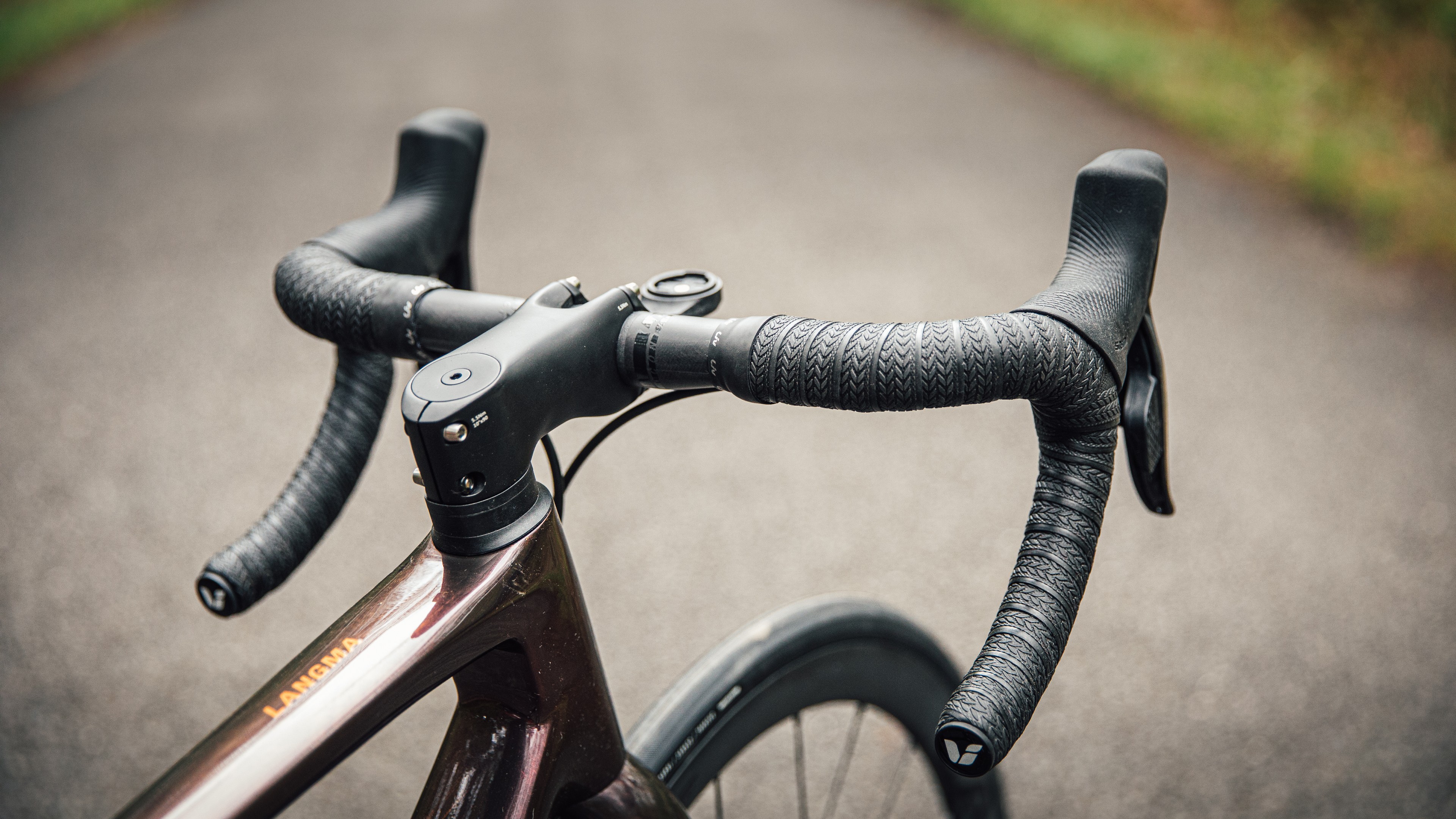
Helpfully, I have some written records when it comes to comparing the Liv Langma 2018, and the Liv Langma Disc 2022 that we have here.
Testing the inaugural bike, back in 2017, I wrote: "For me it wasn't dancing with a desire to sprint out of every corner. Riding with my peers, we took it to task sprinting to every town sign on the way home - and I didn't feel it was the quickest off the mark."
I didn't dislike the bike, and I did concur that it climbed well, but I didn't fall in love with it; it didn't give me the rush I wanted when sprinting for town signs.
The new bike I have on test is completely different, it's felt like a rocket since day one: finally, the Langma is the race bike I wanted it to be.
The Langma Advanced SL Disc, in its current iteration, really does ride exceptionally well. In fact, it reminded me strongly of the Specialized Aethos I was so enamoured with last year, only here, there are some aero tweaks so as not to give away all remnant of free speed. The fact that both bikes favour low weight and relatively round tubing is probably no coincidence.
The Langma climbs beautifully, corners like it’s made to (even if, after a season off racing, I don’t!) and descends confidently; it really blew me away from the first pedal strokes and I've been hard-pressed to feel inclined to ride any other road bike since.
There's no harsh clatter on long days out, either: the Langma Advanced SL Disc cruises just as well as it accelerates. On a race bike, I wouldn't go beyond a 28mm tyre, but there is space for more if you’re seeking greater comfort or contact patch when cornering.
I’ve ridden a wide range of different bikes this year, but it’s the one I’ve chosen to take to the races this season. I imagine that speaks for itself.
I did find myself slamming the stem to ride the Liv in its most aggressive position, something I rarely feel the need to do, so those after a very long and low position might want to check the numbers stack up.
Value and conclusions
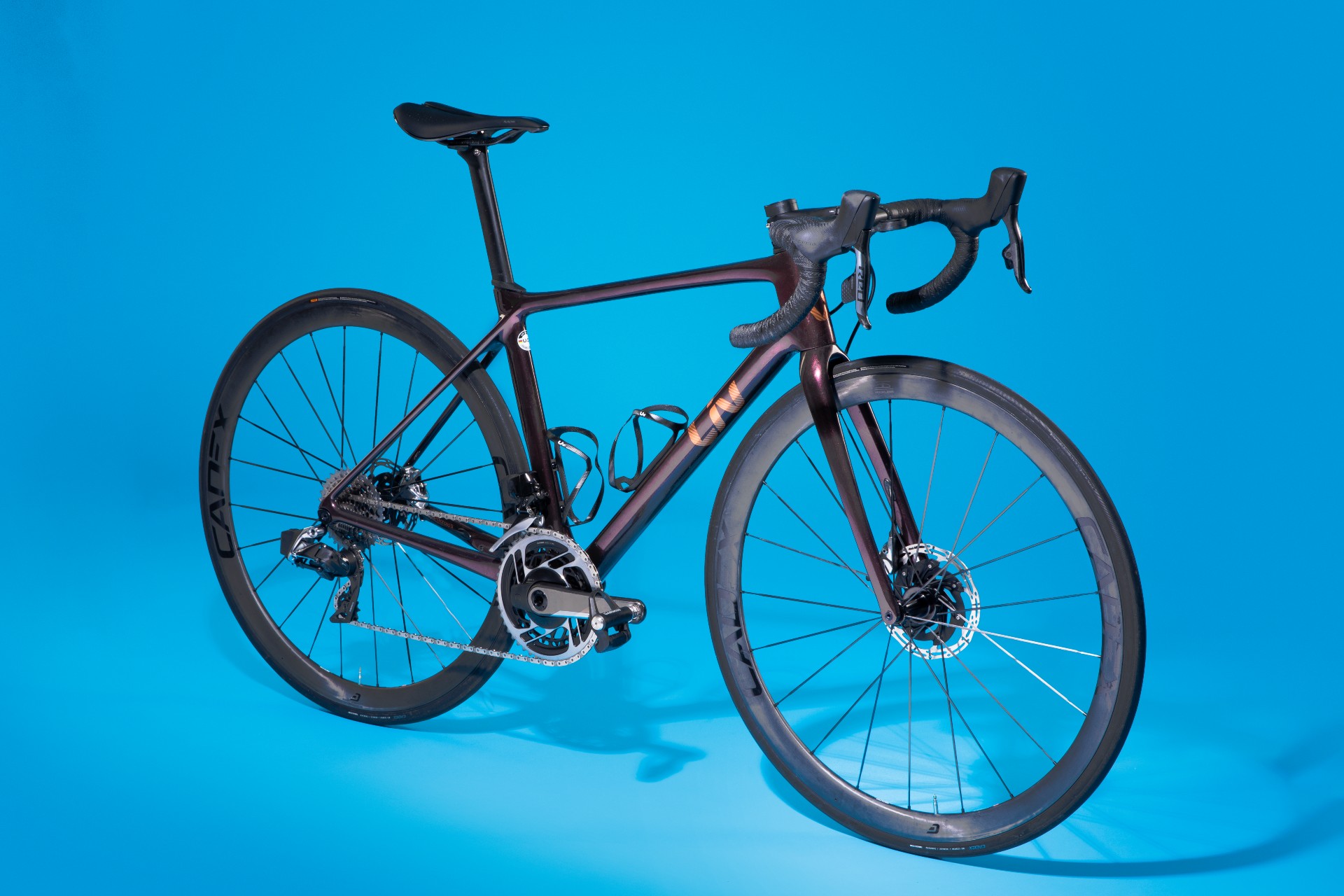
Well, it’s a $10,000 bike, and when the UK version arrives with ‘a different groupset’, I’m sure it’ll be a similar price.
The Langma is specced to match bikes of a similar price point elsewhere, coming with SRAM Red eTap, carbon wheels, a power meter, and the 'halo' carbon frameset; it isn’t lower value than competitors, such as the S-Works Tarmac SL7 with Dura Ace, but it is a hefty investment.
If you're looking for much of the performance, at a fraction of the cost, check out our Liv Langma Advanced Pro Disc 1 review here.
- Weight: 6.7kg
- Frame and fork: SL-Grade Composite
- Handlebar: Liv Contact SLR
- Stem: Giant Contact SLR
- Seatpost: Giant Variant SLR
- Saddle: Liv Alacra SLR CS
- Groupset: SRAM Red eTap AXS
- Bottom bracket: SRAM DUB, press fit
- Wheels: CADEX 36 Carbon Disc WheelSystem
- Tyres: CADEX Road Race, tubeless, 700x25c
- Extras: Computer mount, tubeless prepared

Thank you for reading 20 articles this month* Join now for unlimited access
Enjoy your first month for just £1 / $1 / €1
*Read 5 free articles per month without a subscription

Join now for unlimited access
Try first month for just £1 / $1 / €1
Get The Leadout Newsletter
The latest race content, interviews, features, reviews and expert buying guides, direct to your inbox!
Michelle Arthurs-Brennan the Editor of Cycling Weekly website. An NCTJ qualified traditional journalist by trade, Michelle began her career working for local newspapers. She's worked within the cycling industry since 2012, and joined the Cycling Weekly team in 2017, having previously been Editor at Total Women's Cycling. Prior to welcoming her first daughter in 2022, Michelle raced on the road, track, and in time trials, and still rides as much as she can - albeit a fair proportion indoors, for now.
Michelle is on maternity leave from April 2025 until spring 2026.
-
 'I'll take a top 10, that's alright in the end' - Fred Wright finishes best of British at Paris-Roubaix
'I'll take a top 10, that's alright in the end' - Fred Wright finishes best of British at Paris-RoubaixBahrain-Victorious rider came back from a mechanical on the Arenberg to place ninth
By Adam Becket Published
-
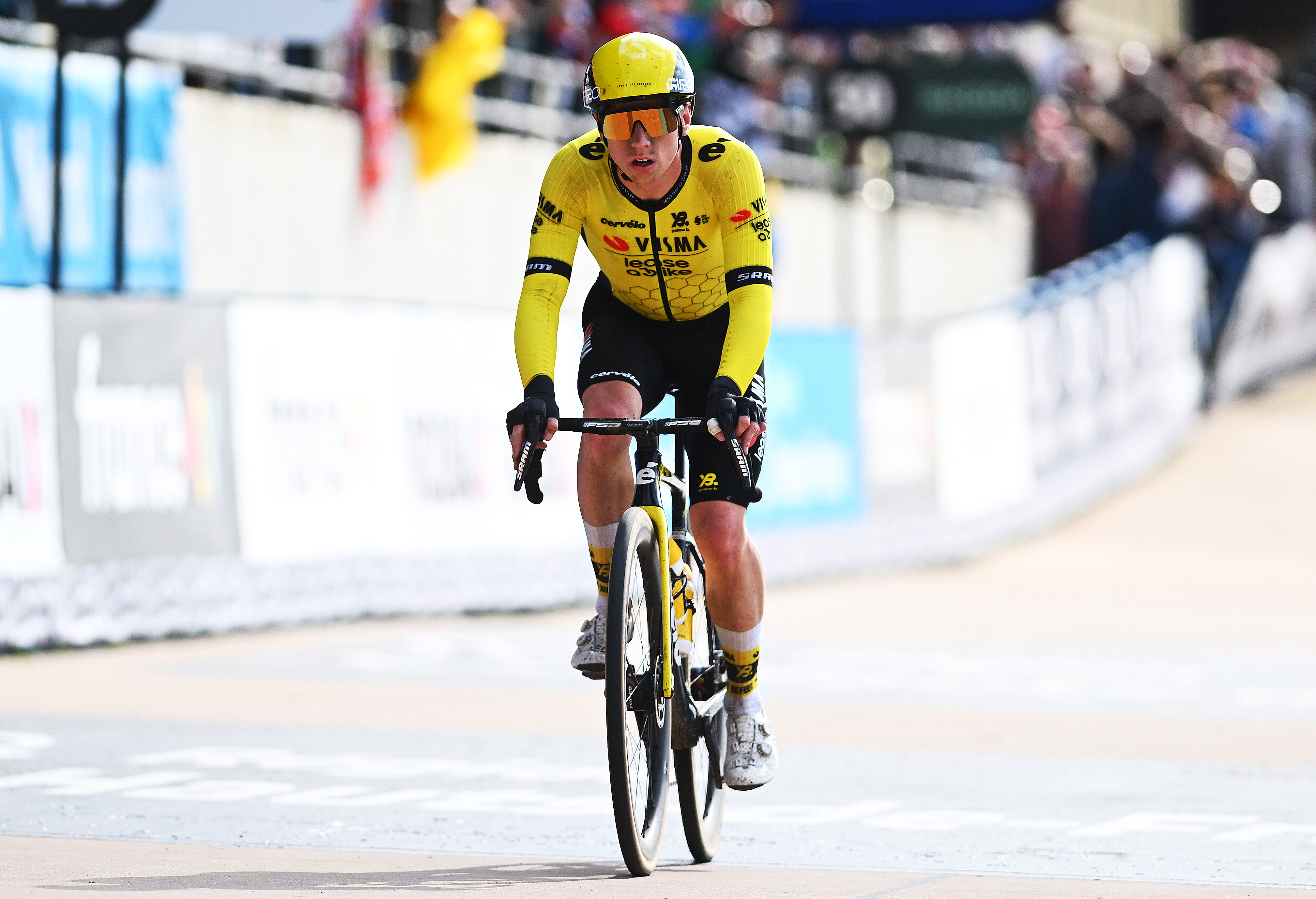 'This is the furthest ride I've actually ever done' - Matthew Brennan lights up Paris-Roubaix at 19 years old
'This is the furthest ride I've actually ever done' - Matthew Brennan lights up Paris-Roubaix at 19 years oldThe day's youngest rider reflects on 'killer' Monument debut
By Tom Davidson Published
-
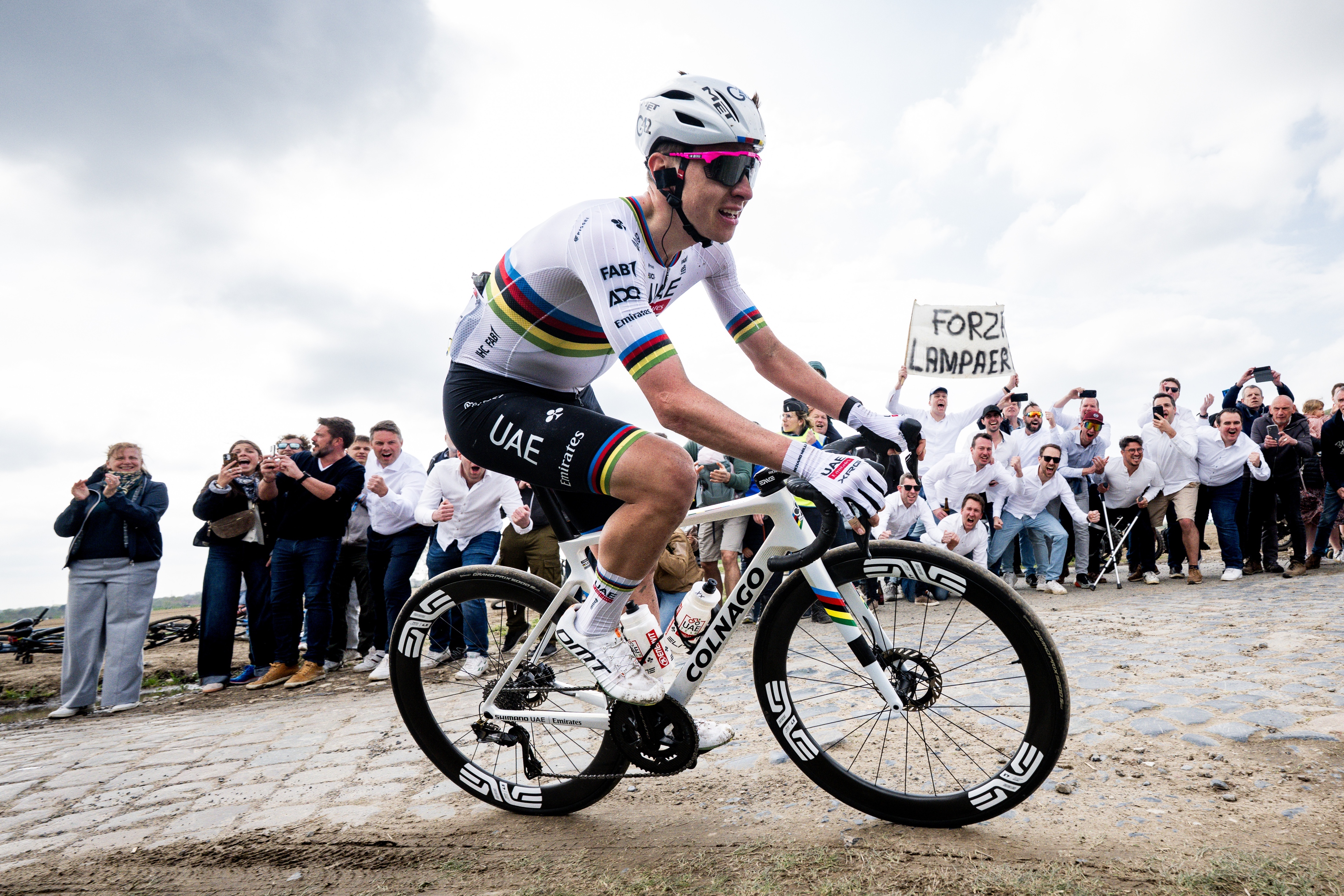 'One of the hardest races I've ever done in my life' - Tadej Pogačar finishes runner-up on Paris-Roubaix debut after crash
'One of the hardest races I've ever done in my life' - Tadej Pogačar finishes runner-up on Paris-Roubaix debut after crashWorld champion reacts to 'extremely hard' battle with Mathieu van der Poel
By Tom Davidson Published